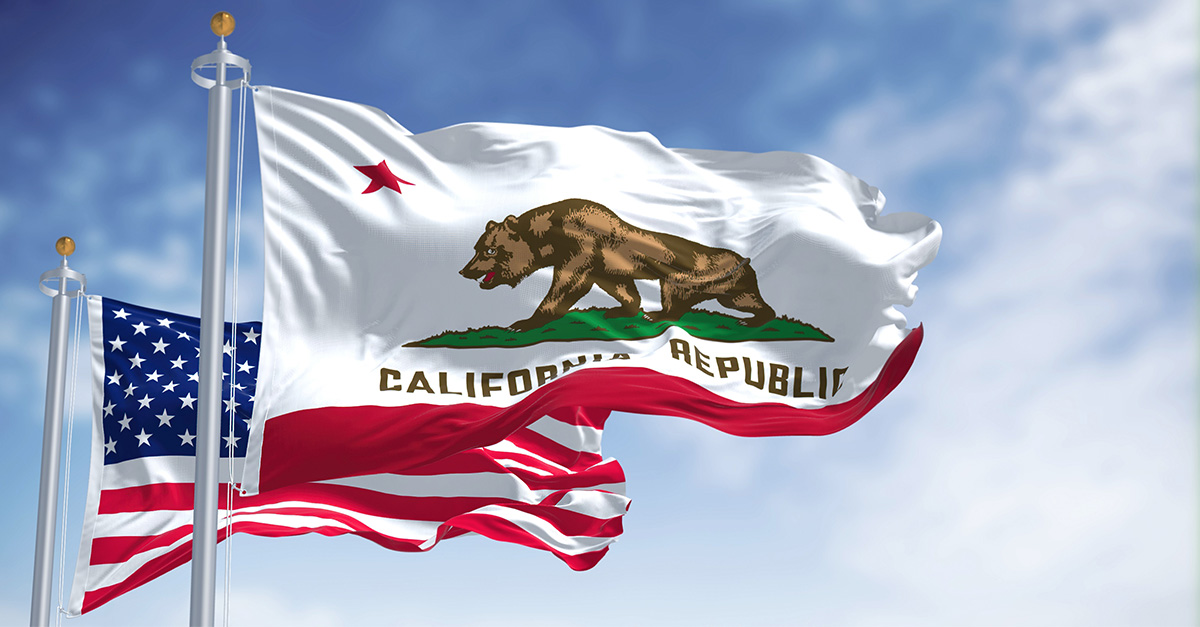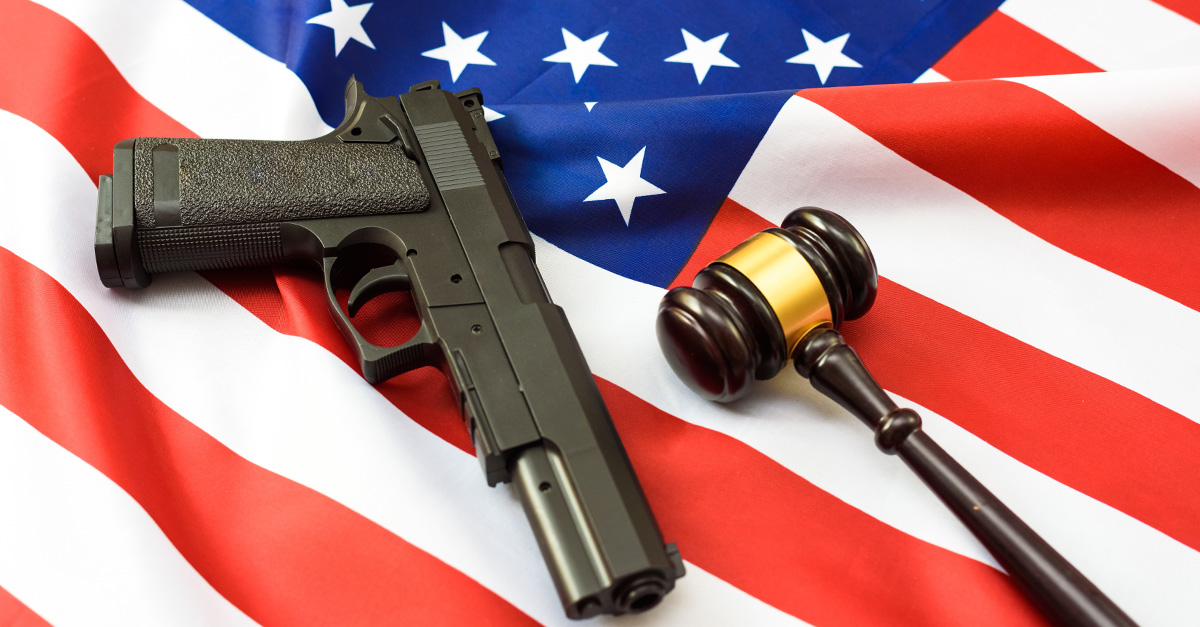


Get a free copy of Parental Rights & Education when you subscribe to our newsletter!

“When a school starts endorsing any single particular point of view, that can be divisive. The school should be inclusive of all…. I prefer to seek more for what unites us as a school.”
–Ryan Jergensen, President, Sunol Glen Unified School District
Pro-LGBTQ parents expressed outrage after two California school districts voted on the same day to ban all flags other than the U.S. or California flag from being flown on school grounds, with critics calling it a targeted ban on LGBTQ pride flags.
The two school districts, Temecula Valley Unified and Sunol Glen Unified, are both located in the San Francisco Bay area.
The moves come after another Bay Area district, Chino Valley Unified, enacted a similar policy in June.
Temecula’s policy, which was approved by a 3-2 vote on September 12, states,
“No flag other than the United States of America and State of California may be displayed on school grounds, including classrooms, unless it is a country, state, or United States military flag used solely for educational purposes within the adopted curriculum. Any other flag must be approved by the Superintendent or designee prior to displaying if, and only if, it is used for educational purposes and only during the related instructional period.”
The contentious meeting contained attendees on both sides of the issue, with some favoring the policy while others were enraged. Coupled with previous changes such as a ban on teaching Critical Race Theory, some critics claim that the school board’s conservative majority is seeking to erase other beliefs.
Jennifer San Nicolas, who has two students in the school district, stated, “It’s just unreal, they [sic] way that they are chipping away at the humanity of kids of color, kids on the LGBTQ spectrum, anyone who isn’t their White evangelical, in their church — they ‘other’ them.”
Many attendees took the policy as just a way to remove LGBTQ pride flags, rather than a neutral policy that ensures that no flags expressing viewpoints and messages are displayed. The school district has previously displayed LGBTQ pride flags.
Resident Jen Reeves argued, “I feel like it removes self-expression, and any sort of ability for teachers to say, ‘Hey, you’re welcome here, and we do support you, and we love you, and we want you here’.”
The board’s agenda item says,
“It is not the intent of the Board of Education to deprive any person of his or her right to freedom of expression. The intent of this regulation is to maintain a safe and orderly workplace for teachers, students, administrators, staff, parents/guardians and other members of the community.”
Some residents were in favor of the policy. Resident Ryan Waroff said he believes that any flag can create division. When asked about the policy obscuring someone’s identity, he responded, “If you walk into a place and it takes a flag for you to feel comfortable about yourself, then we have a bigger problem than that.”
He added, “This isn’t anti-LGBTQ, this isn’t anti-trans. We live in America, and in America, we’re allowed to be whatever we want, but let’s unite under the one unifying goal: That’s ‘We’re all Americans.’ I would like to see us come back to that.”
Another attendee countered by saying, “Okay, fine, so if you’re gonna put a LGBTQ flag up to create a safe space over in that corner, then you…better hang the Christian flag next to it, so those other students don’t feel like they’re not accepted.”
Sunol Glen Unified School District also experienced backlash from some parents, LGBTQ activists, and others, resulting in a heated school board meeting.
In explaining the reasoning for the 2-1 vote to approve the flag-limited measure, Ryan Jergensen, president of Sunol Glen’s school board, argued, “When a school starts endorsing any single particular point of view, that can be divisive. The school should be inclusive of all. Individual views are irrelevant. I prefer to seek more for what unites us as a school.”

The latter point is in line with the Supreme Court’s ruling in Harold Shurtleff v. City of Boston, wherein the Supreme Court determined that the City of Boston had discriminated against a Christian civic group that requested to fly the Christian flag on the city’s third flagpole.
The city had approved every single one of 284 other requests to fly a flag on the city’s extra flagpole, including for LGBTQ pride flags, the flags of other countries, and flags that displayed different religious and political viewpoints. The city only denied the request because the applicants referred to the flag as a “Christian flag.”
In that case, the justices ruled that allowing all groups but Christians to fly flags was viewpoint discrimination, meaning the city of Boston was denying Christians the ability to exercise the same right to speech as other groups.
On the other side of the government speech doctrine, the pro-LGBTQ parents are still wrong. Even if the speech is considered government speech, the school district would be guilty of violating the Establishment Clause. If the district allows individual teachers, or the entire district to fly flags expressing messages, it is expressing approval for those messages, which could be considered religious in nature. The schools could not then refuse to fly other flags, such as the Christian flag, without expressing what is orthodox to students and the community in gross violation of the Supreme Court’s 1943 decision in West Virginia State Board of Education v. Barnette. In that case, the Court ruled,
“If there is any fixed star in our constitutional constellation, it is that no official, high or petty, can prescribe what shall be orthodox in politics, nationalism, religion, or other matters of opinion or force citizens to confess by word or act their faith therein.”
Government is allowed to express messages of approval or disapproval under the government speech doctrine, but it is not allowed to teach students that one religion is good while others are bad. Those who complain about the policy show that they want the government to establish a state religion. There is no reason for a public school to ever fly such a flag whether it be for a political group, an ideology, or a religion. Imagine the outrage if a public school decided to fly the Christian flag. LGBTQ ideology has become a kind of religion, and it is unacceptable — and yes, divisive — for a public school to fly such a flag.
The school boards are not “erasing” LGBTQ people nor are the policies only targeting LGBTQ flags. They are ensuring that their districts follow the Constitution and do not alienate students or establish a government-endorsed religion. By their reaction, the pro-LGBTQ parents are showing that they don’t want inclusion and diversity, they want conformity — conformity to their viewpoint.
The different school boards’ embrace of a neutral flag policy is wise and in line with the Constitution, and everyone who voted for it should be applauded.
Collegiate education is saturated in woke narratives and progressive agendas. Sadly, this secularistic intrusion is happening in America’s grade schools as well. But this doesn’t have to happen to your children! Liberty University Online Academy is a K-12 program designed to educate your children in the ways of the Lord while preparing them to stand firm in their faith when they graduate. Our flexible online curriculum ensures your student is trained at your convenience and keeps YOU the ultimate educator of your children.
Christian conservative news and issues that matter. Curated just for you!
